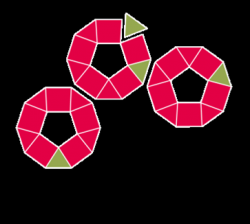 Ingeborg Meijer and Gaston Heimeriks participate in the CHERRIES project, which will start in January 2020 and last for 3 years. This H2020 Coordination and support project was funded under SwafS-14-2018-2019 (Topic: SwafS-14-2019). The project will support Responsible, Research and Innovation (RRI) policy experiments in the healthcare sector in three European territories - in Murcia (ES), Örebro (SE) and the Republic of Cyprus (CY). These processes, their outcomes and the policy frameworks the experiments are embedded in will be mapped, monitored, evaluated and serve as evidence-base for revision of sectoral policies, strategies and innovation support instruments.
Ingeborg Meijer and Gaston Heimeriks participate in the CHERRIES project, which will start in January 2020 and last for 3 years. This H2020 Coordination and support project was funded under SwafS-14-2018-2019 (Topic: SwafS-14-2019). The project will support Responsible, Research and Innovation (RRI) policy experiments in the healthcare sector in three European territories - in Murcia (ES), Örebro (SE) and the Republic of Cyprus (CY). These processes, their outcomes and the policy frameworks the experiments are embedded in will be mapped, monitored, evaluated and serve as evidence-base for revision of sectoral policies, strategies and innovation support instruments.
CHERRIES will engage the territorial stakeholder ecosystems in participatory agenda setting, need articulation and institutional reflection processes. These will serve as starting point for collective approaches with shared responsibilities aiming to create more open, inclusive and self-sustaining territorial research and innovation (R&I) ecosystems.
In the context of R&I policies, three major trends are relevant for the CHERRIES project:
1. Responsible Research and Innovation as the key action of the “Science with and for Society” objective, created a process in which societal actors (researchers, citizens, policy makers, business, third sector organisations, etc.) jointly contribute to better align the innovation process and its outcomes with the values, needs and expectations of society.
2. Both, the definition of Societal Grand Challenges (SGC) and the Sustainable Development Goals (SDG) mark the return of the public sector as a major actor in shaping the directionality of innovation. The new mission and challenge orientation requires new partnerships as public agencies co-create new technological opportunities and market landscapes.
3. During the last decades, the territorial level has been gaining importance for innovation policy because the role of proximity and the presence of knowledge-related institutions are thought to have a positive influence. Thereby, the smart specialisation strategy (RIS3) programme is the most ambitious and endowed approach of EU-funded territorial innovation policies so far.
CWTS will be involved in mapping of territorial policies, the co-creation of new policy mixes based on the regional experimentation, and in the monitoring and evaluation of the approach. Grounding our knowledge base in this area of regional knowledge and innovation systems is shown by the recent publication: Scientific knowledge production in European regions: patterns of growth, diversity and complexity, Gaston Heimeriks, Deyu Li, Wout Lamers, Ingeborg Meijer & Alfredo Yegros.
European Planning Studies Volume 27, 2019 - Issue 11 Pages 2123-2143 |

